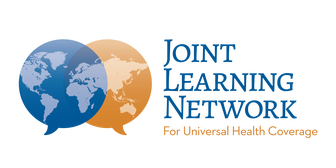COVID-19 Infection Prevention and Control Learning Exchange
About the Learning Exchange – This activity has concluded
Technical framing of topic area: Infection Prevention and Control & COVID-19
Infection prevention and control (IPC) is a methodical approach to prevent harm caused by infection to patients and health care workers. The topic encompasses concepts from the fields of infectious diseases, epidemiology, social science, and health system strengthening. During the COVID-19 pandemic, IPC principles, strategies, and protocols have been critical to preventing and managing spread of infections in communities and health care settings. Furthermore, due to the evolving understanding of the virus, best practices and evidence-based guidelines are constantly being updated and adapted. There has been significant variation in how countries have responded to mitigate the community and nosocomial transmission of the SARS-CoV-2 virus both in strategies chosen and how they have been implemented. With the entire world involved in COVID-19 response but hitting waves of infection at varying times, it is critical that countries learn from one another to strengthen responses during the different phases and adapt and correct course to reduce preventable infections in the community and health care settings.
Learning Exchange Objectives
- Build a network of practitioners and policymakers who can support one another in their COVID-19 response
- Identify the most pressing priorities in Infection Prevention & Control that are responsive to countries’ needs during the pandemic
- Share, discuss, and improve COVID-19 Infection Prevention & Control knowledge, protocols, and strategies to implement throughout the course of the pandemic
Scoping
The facilitation team solicited rankings of priority topics within IPC via a modified eDelphi approach with two rounds of surveys in order to focus on the areas most important to the participants. The following two topics were prioritized to be the sub-working groups of the IPC exchange:
- Community mitigation strategies (CMS): Challenges and strategies for social distancing and community masking
- PPE and IPC in healthcare settings (PPE): Challenges and strategies around the appropriate use of PPE and preventing nosocomial infections
Learning agenda and what was covered
Using a mix of live sessions via Zoom and asynchronous exchanges via Padlet and MyJLN, the facilitation team supported the country participants in the sharing of best practices and resources and facilitated robust discussion around adapting and implementing these best practices for continued COVID-19 response. Each group centered on joint learning as a core value and sought to enable community building and direct idea exchange among country partners. Questions that supported these discussions were:
- What is the current status of IPC (CMS or PPE) in your system?
- What has been your biggest challenge in (CMS or PPE) during the COVID-19 pandemic?
- What has been your country or institution’s approach to the problem?
- Discuss strengths/weaknesses of country promising practices
- What has contributed to strategies being successful/effective?
- Name contextual factors, inputs, implementation strategies, desired outcomes
- What are potential barriers to implementing the promising practice?
Participating Countries
- Azerbaijan
- Cote d’Ivoire
- Egypt
- Ethiopia
- Ghana
- India
- Indonesia
- Iran
- Malaysia
- Myanmar
- Philippines
- Uganda
Participants
- Amar Nawkar, India
- Anjo Dela Peña, Philippines
- Danny Gotto, Uganda
- Eka Yoshida Syofian, Indonesia
- Khanim Malikova, Azerbaijan
- Kouassi Amani Simplice, Cote d’Ivoire
- Kyaw Zan Linn, Myanmar
- Leonard Anaman, Ghana
- Marjan Manouchehri, Iran
- Mervat Elanany, Egypt
- Momodou Cham, Ghana
- Rasha Bassyouni, Egypt
- Suraya Amir Husin, Malaysia
- Tigistu Ashengo, Ethiopia
- Ting Soo Chow, Malaysia
Technical Facilitators
June-Ho Kim, MD MPH
Lisa Hirschhorn, MD, MPH
Julia Ah-Reum An, MD, MPH
Dan Schwarz, MD MPH
Anna Kennedy
Kaeng Takahashi
Jane Kavanagh
